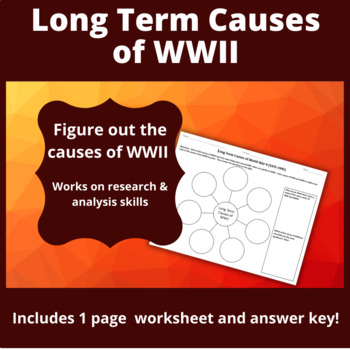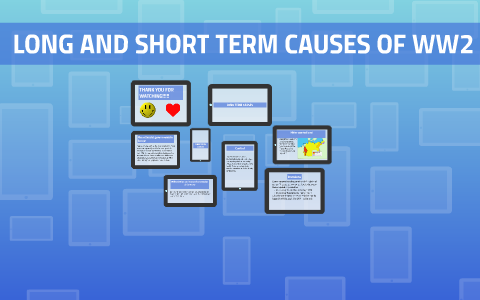World War II was one of the most devastating conflicts in human history, resulting in the deaths of tens of millions of people and the displacement of even more. The war had its roots in a number of long-term causes, including the aftermath of World War I, the rise of authoritarian regimes, and the failure of international diplomacy.
One of the primary long-term causes of World War II was the aftermath of World War I. The Treaty of Versailles, which officially ended the first World War, imposed harsh penalties on Germany, including large reparations payments and the loss of territory. This treaty, along with the economic turmoil of the 1920s and 1930s, led to widespread resentment and anger in Germany, which was eventually exploited by the Nazi party.
Another long-term cause of World War II was the rise of authoritarian regimes in several countries. In Italy, Benito Mussolini's fascist government came to power in 1922, and in Germany, Adolf Hitler's Nazi party rose to prominence in the 1930s. Both of these regimes were characterized by their aggressive expansionist policies and their disregard for the rights and freedoms of their citizens.
The failure of international diplomacy was also a major cause of World War II. In the years leading up to the war, several major powers, including the United States, Great Britain, and France, failed to take effective action to prevent the aggressive actions of Germany and Italy. This lack of action emboldened these countries to pursue their territorial ambitions, ultimately leading to the outbreak of war.
Overall, the long-term causes of World War II were complex and multifaceted, including the aftermath of World War I, the rise of authoritarian regimes, and the failure of international diplomacy. These factors, combined with a number of other political, economic, and social factors, ultimately led to the outbreak of one of the deadliest conflicts in human history.






